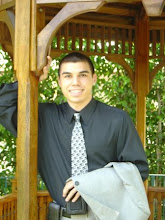These days it's not easy owning a condo, or any house located in a community that requires homeowners to pay fees. As more owners in these communities feel financially pinched, many aren't paying dues. That means residents who keep up with the bills have to pay a bigger share of the burden—and if there aren't enough reserves to pay to replace worn-out roofs or fix a cracked sidewalk, they face the possibility of bumped-up dues or an unexpected special assessment.
On the flipside, prices are low. And for the brave home buyer, there are bargains out there. The trick is looking closely at the homeowner association's health. Buyers need to question the association board about dues payments, and have their inspectors examine common elements before committing to a purchase. It's also important to review the financial documents that every buyer has a right to inspect before closing.
But what should you be looking for? We asked Leonard Baron, professor of finance at San Diego State University, for some tips:
- Make sure you get all the documents, and have sufficient time to look them over. Buyers are supposed to get all financial documents relating to the association during their inspection period, but often they arrive, incomplete, just a day or two before closing. That's not enough time to review documents that may be many pages long. So Prof. Baron advises that you bug your agent for them the minute your home goes into escrow, and demand at least three days to review them.
- Check the financial statement. About two-thirds of the association's budget should be operating expenses such as water, lights, elevator maintenance and landscaping; the rest should be set aside in a reserve fund for long-term maintenance and repairs. See if expenses exceed revenues due to foreclosures, unpaid dues or other reasons. If they do, ask the association what their plans are to make up the shortfall, and whether you should expect an assessment or higher dues. Ask also if there are plans to save costs by cutting pool hours, or the number of mowings or clubhouse cleanings. This could affect not only your comfort, but also the future marketability of your home.
- Review the reserve study. Not every state requires these, but they are becoming more common. For such a study, the association will hire an outside firm that will look at all long-term anticipated repairs and replacements over a period of 30 years, add up the costs, and put together a payment and maintenance schedule. The monthly dues you're charged should reflect the amount of money that needs to be put away to pay for these necessities, but you shouldn't simply assume that's happening. "Many times the boards, under pressure by the owners, will hold the line on raising fees, to the long-term detriment of the property," he says.
- See what percentage of reserve funds has been raised. In an ideal world, associations would save enough money over time to pay for every contingency. So if the roofs on 100 condo units will need to be repaired in 12 years at a cost of $240,000, for the reserve to be 100% funded after six years, half of that sum would need to have been put away for that purpose. But in the real world, associations often rob their own reserve funds to pay for operating and other expenses; Prof. Baron estimates that most are only funded 50% or less. Although the percentage of funding necessary varies by the age and size of a complex, (for instance a skyscraper with a complex mechanical system is much higher maintenance than a small townhouse community) in general, you should be wary if funding is below 40%. "You could be hit with thousands of dollars in assessments if something expensive fails," he says.
Source: WSJ, October 11, 2009, written by: June Fletcher


